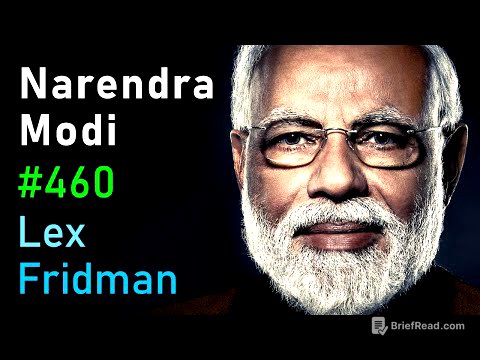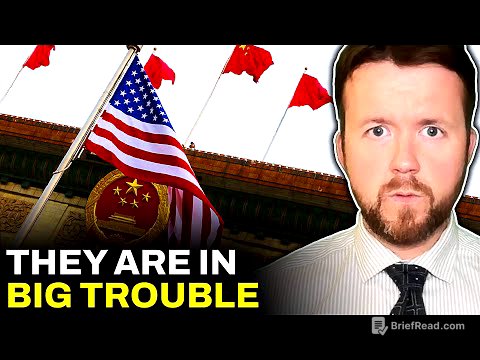TLDR;
The UK government is implementing significant restrictions on various visa types starting in 2025. These changes affect skilled worker visas, student visas, family reunification, and even visitor visas, making it more difficult and expensive to secure entry into the UK. The new policies include stricter qualification criteria, higher salary thresholds, limitations on post-study work rights, increased financial requirements for students, caps on family reunification visas, and more rigorous checks for visitor visa applicants.
- Stricter controls on skilled worker visas with a lower cap and higher salary requirements (£30,000 annually).
- Restrictions on graduate work rights for international students and increased financial requirements.
- Limitations on family reunification visas with a cap on the total number granted each year.
- Increased checks on visitor visa applicants and more rigid requirements for permanent residency.
- Overhaul of the immigration processing system with a new digital platform and increased visa application fees.
Introduction: 2025 UK Visa Crackdown [0:00]
The UK government has announced a major crackdown on visas starting in 2025, which will significantly impact individuals planning to move to the UK. These restrictions span across skilled worker visas, student routes, and family reunifications, making it more challenging and costly to obtain a visa. The announcement signals a shift towards stricter immigration controls under Prime Minister Rishi Sunak's administration.
Skilled Worker Visa Restrictions [1:00]
The UK government is imposing stricter controls on skilled worker visas by setting a lower cap on the number of visas available each year. This change means applicants will face tougher competition and must meet more stringent qualifications. A key challenge is the increased salary threshold, which rises from approximately £25,600 to at least £30,000 annually, potentially leaving crucial roles unfilled in sectors like hospitality, retail, and social care that rely on migrant workers.
High Demand Work Visas Reduction [2:19]
The UK government has announced a reduction in the number of high-demand work visas available for specific sectors, including healthcare, IT, and engineering. Despite labor shortages in these industries, the UK aims to reduce its dependence on skilled foreign labor by limiting the total number of visas issued. This change means that individuals hoping to work in these sectors in the UK may face stiffer competition and fewer opportunities.
Student Visa System Tightening [2:52]
The student visa system is also being tightened, with significant restrictions on graduate work rights starting in 2025. International students will only be allowed to stay for a limited time after completing their degree, depending on their field of study and course type. Transitioning from a student visa to a full work visa will become more difficult, and international students will need to meet higher standards, including stricter English language proficiency criteria and proof of greater financial support, with financial support requirements raised by up to 20%.
Family Reunification Visa Under Spotlight [4:18]
The UK government has restricted family reunification options, making it more difficult for visa holders to bring family members, such as spouses and children, to the UK. Partners and dependents of visa holders will face increased scrutiny, longer waiting times, higher fees, and more documentation requirements. A controversial element is the introduction of a visa cap for family reunification routes, limiting the total number of visas granted each year and potentially causing significant delays.
Visitor Visa Program Restrictions [5:27]
Tighter restrictions are being placed on the visitor visa program, affecting those wanting to come to the UK for business, tourism, or short-term visits. The Home Office will increase checks on visitor visa applicants, focusing on tightening the approval process for frequent travelers, even if they have previously adhered to the terms of their stay. This could lead to longer processing times, more rigorous questioning, and a higher chance of refusal.
Permanent Residency and Indefinite Leave to Remain (ILR) Changes [6:01]
The UK government has added additional restrictions for those seeking to apply for permanent residency or indefinite leave to remain (ILR). These new rules will make it more difficult for applicants to meet the requirements, such as continuous residence and income levels. The threshold for demonstrating continuous residence in the UK is set to become more rigid, potentially disqualifying applicants based on technicalities like gaps in employment or temporary travel outside the country.
Overhaul of Immigration Processing System [6:34]
The UK government is committed to a complete overhaul of its immigration processing system in 2025, rolling out a new digital platform designed to streamline the application process. While intended to reduce the administrative burden and improve efficiency, there are concerns that this new system could lead to increased delays, especially for applicants from outside the EU.
Increased Visa Application Fees [7:01]
Starting in 2025, there will be an increase in visa application fees across multiple routes. These hikes could add hundreds of pounds to the cost of applying for a work, study, or family visa, making it even harder for people from lower-income backgrounds to afford the process.









